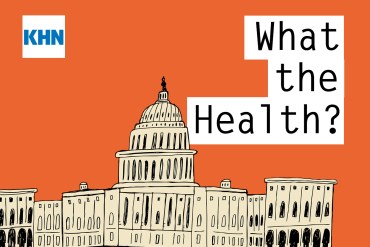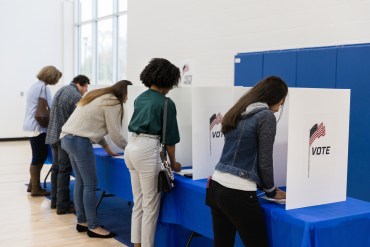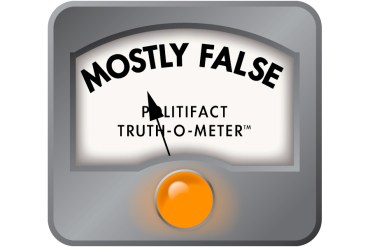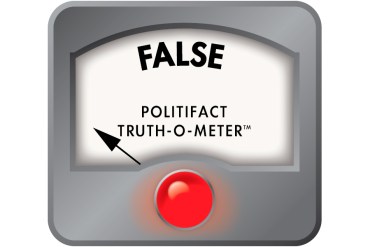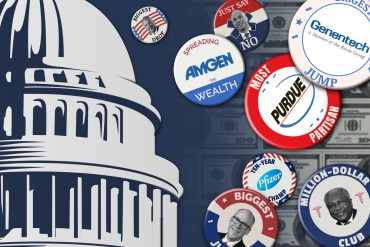Labor Tries City-by-City Push in California for $25 Minimum Wage at Private Medical Facilities
Service Employees International Union-United Healthcare Workers West is testing the waters on a $25 minimum wage for support staff at health care facilities in Southern California. Opposition from hospitals and health facilities is driving an expensive battle.
Awaiting Voters’ Decision on Abortion, When Medicine and Politics Collide
As Michigan and several other states await voters’ verdicts on ballot measures about abortion, the providers, patients, and activists on both sides strategize their next steps.
KHN’s ‘What the Health?’: Biden Hits the Road to Sell Democrats’ Record
With the midterm elections rapidly approaching, President Joe Biden has taken to the road to convince voters that he and congressional Democrats have delivered for them during two years in power. Among the health issues highlighted by the administration this week are pandemic preparedness and the availability of over-the-counter hearing aids. The president also promised to sign a bill codifying the abortion protections of Roe v. Wade if Democrats maintain control of the House and Senate — even though it’s a long shot that there will be enough votes for that. Sarah Karlin-Smith of the Pink Sheet, Sandhya Raman of CQ Roll Call, and Mary Agnes Carey of KHN join KHN’s Julie Rovner to discuss these topics and more. Plus, for extra credit, the panelists recommend their favorite health policy stories of the week they think you should read, too.
5 Things to Know About Montana’s ‘Born Alive’ Ballot Initiative
A ballot measure that seeks to protect infants following failed abortions would impose stiff penalties on health care providers in Montana.
Campaigning Ramps Up as South Dakota Voters Decide on Medicaid Expansion
A broad coalition of Medicaid expansion supporters faces off against a smaller group of opponents as early voting begins on a constitutional amendment that would increase coverage under South Dakota’s program.
KHN’s ‘What the Health?’: Finally Fixing the ‘Family Glitch’
The Biden administration has decided to try to fix the so-called “family glitch” in the Affordable Care Act without an act of Congress. The provision has prevented workers’ families from getting subsidized coverage if an employer offer is unaffordable. Meanwhile, Medicare’s open enrollment period begins Oct. 15, and private Medicare Advantage plans are poised to cover more than half of Medicare’s 65 million enrollees. Margot Sanger-Katz of The New York Times, Joanne Kenen of the Johns Hopkins Bloomberg School of Public Health and Politico, and Rachel Cohrs of Stat join KHN’s Julie Rovner to discuss these topics and more. Plus, for extra credit, the panelists recommend their favorite health policy stories of the week they think you should read.
Votantes, más motivados para ir a las urnas tras prohibición del aborto, revela encuesta
El sondeo también mostró que la mayoría de los votantes, ya sean demócratas o republicanos, no cree que el aborto deba prohibirse en casos de violación o incesto, ni apoyan las leyes que establecen condenas para los proveedores de abortos y las mujeres que abortan.
Abortion Bans Are Motivating Midterm Voters, Poll Shows
A new KFF poll shows Democrats and those living in states where abortion is illegal say the issue has made them more motivated to vote. It also shows that 70% of Republicans oppose total abortion bans.
KHN’s ‘What the Health?’: Looking Ahead to the Lame-Duck Session
Congress won’t be back in Washington until after Election Day, but lawmakers have left themselves a long list of items to finish up in November and December, including unfinished health care policies. Sandhya Raman of CQ Roll Call; Jessie Hellmann, also of CQ Roll Call; and Mary Agnes Carey of KHN join KHN’s Julie Rovner to discuss these topics and more. Also this week, Rovner interviews KHN’s Sam Whitehead, who reported and wrote the latest KHN-NPR “Bill of the Month” episode about a family who tried to use urgent care to save money, but ended up with a big emergency room bill anyway.
Opponents of California’s Abortion Rights Measure Mislead on Expense to Taxpayers
California Together, which opposes Proposition 1, warns that taxpayers will pay millions more if the abortion rights constitutional amendment passes because it would attract women from out of state. We take a closer look.
KHN’s ‘What the Health?’: Graham’s Bill Recenters Abortion Debate
Republicans would like to shift the political focus away from abortion to economic issues for the midterm elections, but a bill from Sen. Lindsey Graham (R-S.C.) that would ban most abortions after 15 weeks of pregnancy has put the issue squarely back on their agenda. The proposal was not welcomed by many of his colleagues, especially Minority Leader Mitch McConnell. Also this week, the muddle about where the fight against covid stands and near-record-low numbers of uninsured in the U.S. Rachel Cohrs of Stat, Sandhya Raman of CQ Roll Call, and Margot Sanger-Katz of The New York Times join KHN’s partnerships editor, Mary Agnes Carey, to discuss these issues and more.
Impending Hospital Closure Rattles Atlanta Health Care Landscape and Political Races
The nonprofit owners of Atlanta Medical Center, a 460-bed Level 1 trauma center in the heart of the city, plan to close the hospital in November. As many community members worry about the hole the closure will leave in the city’s safety net, the news has thrust health care into the political spotlight less than two months before Election Day.
Journalists Discuss the Nation’s Suicide Prevention Hotline, Abortion, and ‘Forever Chemicals’
KHN and California Healthline staff made the rounds on national and local media this week to discuss their stories. Here’s a collection of their appearances.
No, the Senate-Passed Reconciliation Bill Won’t Strip $300 Billion From Medicare
Under the Medicare drug negotiations provisions in the reconciliation bill, the federal government would see its outlays reduced by about $300 billion. That reduction wouldn’t result from cuts in benefits. Instead, Medicare would be empowered to leverage its market power to pay lower prices for certain drugs.
KHN’s ‘What the Health?’: Kansas Makes a Statement
In the first official test vote since the Supreme Court overturned Roe v. Wade, voters in Kansas’ primary said in no uncertain terms they want to keep a right to abortion in their state constitution. Meanwhile, the Senate is still working to reach a vote before summer recess on its health care-climate-tax measure, but progress is slow. Tami Luhby of CNN, Sandhya Raman of CQ Roll Call, and Rachel Cohrs of Stat join KHN’s Julie Rovner to discuss these issues and more. Also this week, Rovner interviews KHN’s Bram Sable-Smith, who wrote the latest KHN-NPR “Bill of the Month” installment about a very expensive ambulance trip.
In Some States, Voters Will Get to Decide the Future of Abortion Rights
Measures to enshrine the right to abortion in the state constitution will be on the ballot in California and Vermont this fall. Abortion-rights advocates in Michigan are hoping their state will follow suit.
California’s Public Health Tax Is Dead for the Year
A ballot measure that would have taxed California millionaires to boost public health funding will not be on the November ballot. But the tech titans who bankrolled the effort say they are negotiating with Gov. Gavin Newsom’s administration to get more money without imposing new taxes.
Biden Administration Announces Boost for Rural Health Care in Midterm Election Push
President Joe Biden’s Cabinet members are fanning out across the country to promote benefits coming to rural America from covid relief and infrastructure legislation.
A KFF Health News database tracks campaign donations from drugmakers over the past 10 years.
KHN’s ‘What the Health?’: FDA Takes Center Stage
Congress is set to start its once-every-five-years review of the law that authorizes user fees to finance the hiring of personnel to speed the FDA review of drugs. The periodic renewals of “PDUFA” also give lawmakers a chance to make other changes to the agency at the hub of the pandemic. Meanwhile, the FDA could also find itself at the center of the abortion debate and a controversial new medication to treat Alzheimer’s disease. Anna Edney of Bloomberg News, Joanne Kenen of the Johns Hopkins Bloomberg School of Public Health and Politico, and Sarah Karlin-Smith of the Pink Sheet join KHN’s Julie Rovner to discuss these issues and more.






